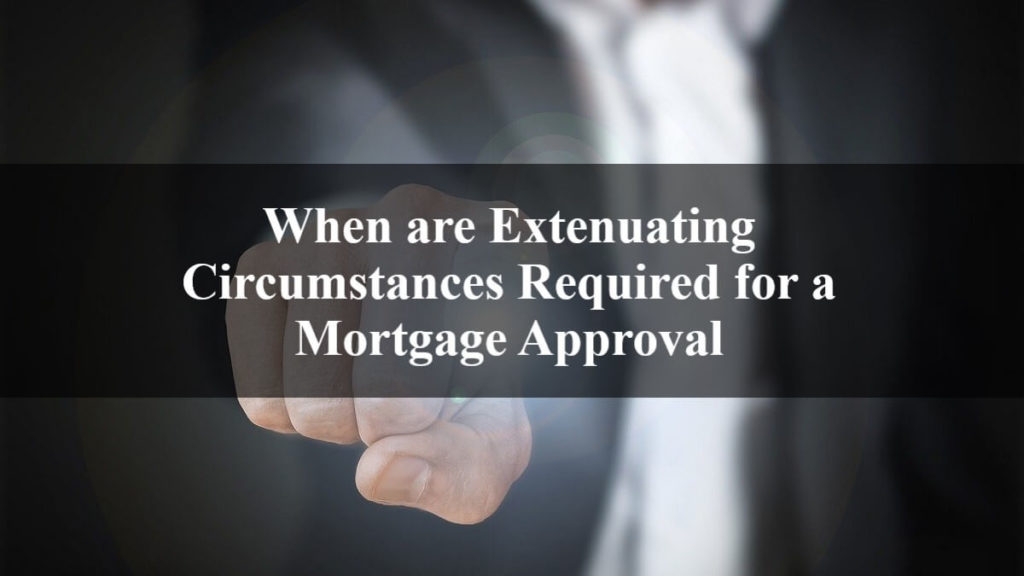When are Extenuating Circumstances Required for a Mortgage Approval
Extenuating circumstances may be required when there are charge offs, collections, delinquent accounts, judgments, and derogatory events. This is defined as a nonrecurring event beyond your control that resulted in derogatory marks on credit. An underwriter will determine if there is enough evidence to grant the exception.
Underwriting Additional Analysis
When there is a history of charge offs, collections, delinquent accounts, judgments, and derogatory events, an underwriter will analyze credit to determine whether:
- They are a disregard for financial obligations.
- There is an inability to manage debts.
- Or there are extenuating circumstances.
There must be documented extenuating circumstances for an underwriter to approve a loan when there is not satisfactory credit history.
Documenting Extenuating Circumstances
A written explanation explaining the event along with relevant documentation is required to prove the nonrecurring event was beyond your control. Some examples of documents that confirm the event:
- Medical reports.
- Medical bills.
- Notice of job layoff.
- Job severance papers
- And many other.
When an underwriter grants the exception, the ability to repay the mortgage is also a big factor for a mortgage approval. This means you will have to demonstrate you still have the ability to repay the mortgage and your past situation is no longer an issue.
Mortgage Extenuating Circumstances
Acceptable extenuating circumstances must document cases where they are beyond the control of the borrower. Some examples include serious illness or death of a wage earner.
Going over your case scenario with a licensed Loan Originator will improve your chances of a mortgage approval before submitting any documentation to underwriting. This will help determine when are extenuating circumstances required for a mortgage approval.
Divorce and Job Transfer – FHA
Divorce is a common issue when it comes to credit issues, but unfortunately it is not seen as an extenuating circumstance unless the ex-spouse received the property. The mortgage would have had to been current at the time of the transfer.
Another example that would not qualify for extenuating circumstances would be the inability to sell a property due to a job transfer or relocation.
FHA Bankruptcy Waiting Period
For a Chapter 7 bankruptcy, there is a two year waiting period without extenuating circumstances. Re-established good credit and a borrower’s decision not to incur new credit obligations can strengthen the case scenario.
A twelve month waiting period may be acceptable if:
- The bankruptcy can be documented and was beyond the borrower’s control; and
- Demonstrate the ability to manage financial obligations in a responsible manner.
A Chapter 13 bankruptcy is acceptable when:
- 12 months pay out period has elapsed;
- You have written permission from the bankruptcy court to enter the mortgage transaction.
FHA Foreclosure Waiting Period
There is a three year waiting period prior to a case number assignment for FHA mortgages. The mortgagee may grant an exception to the three year waiting period when documenting extenuating circumstances.
Non-QM Loan with No Seasoning
There are loan programs that have no seasoning on derogatory events. The Non-QM loans, also known as portfolio loans, can be a great option when the down payment and reserves have been met.
